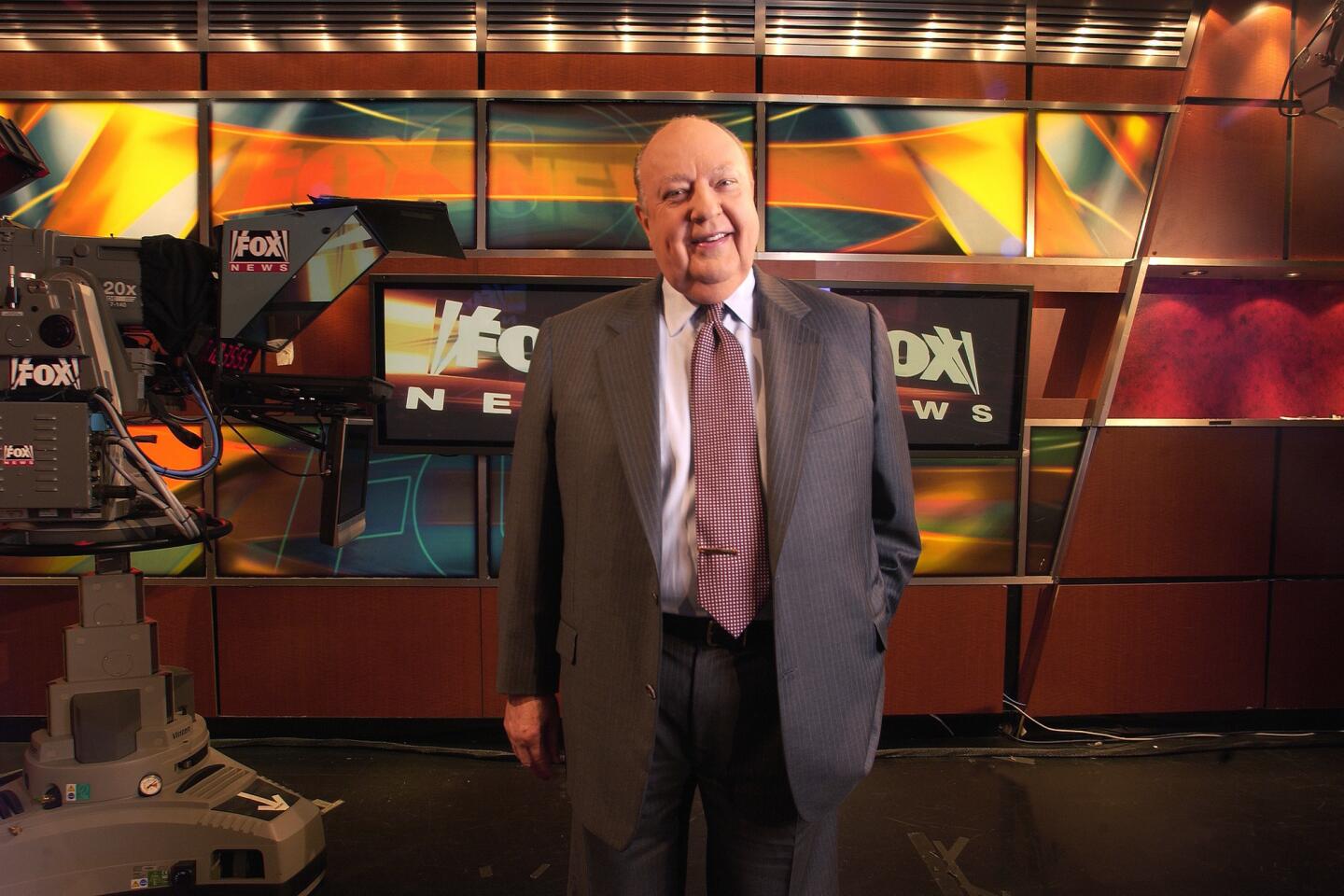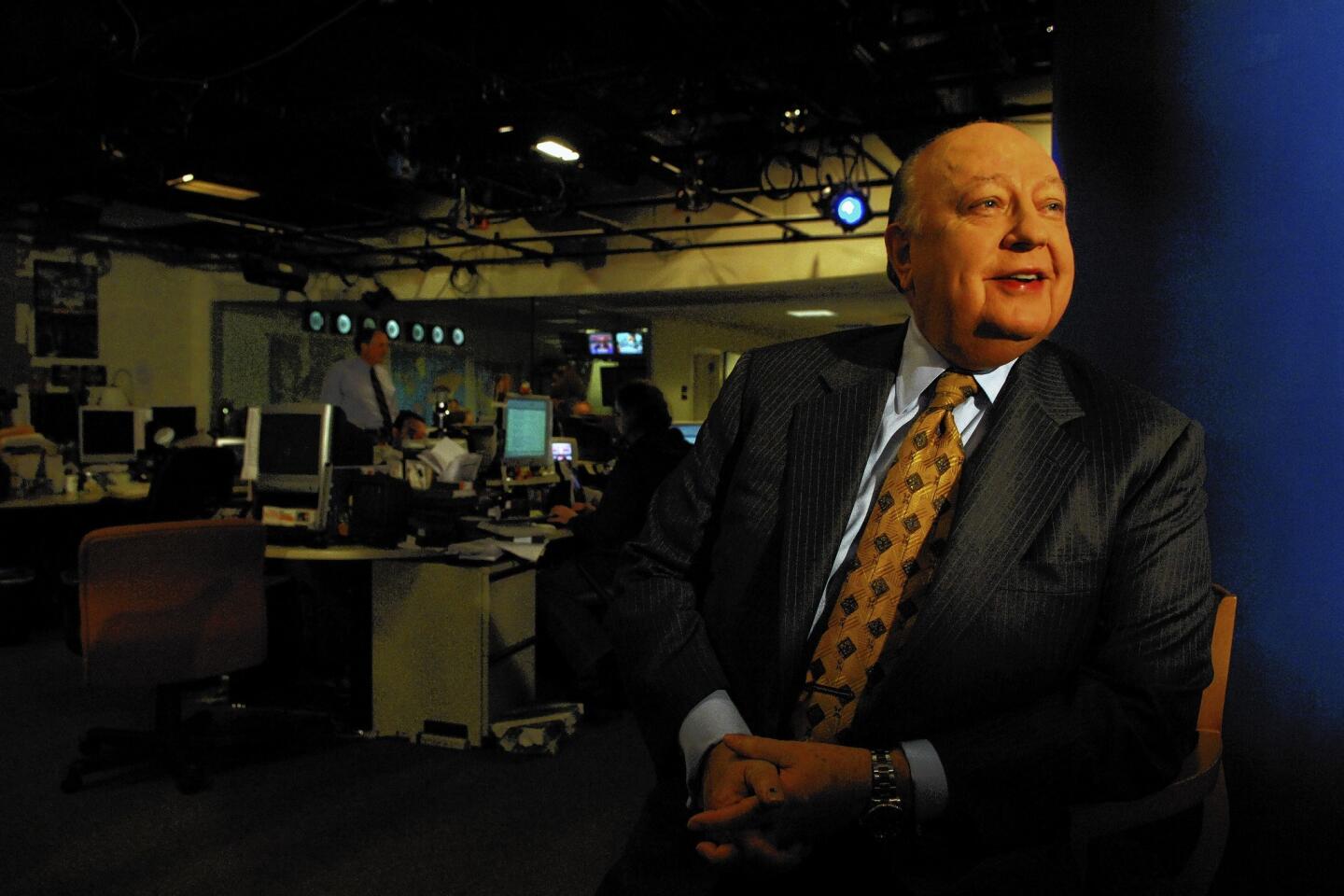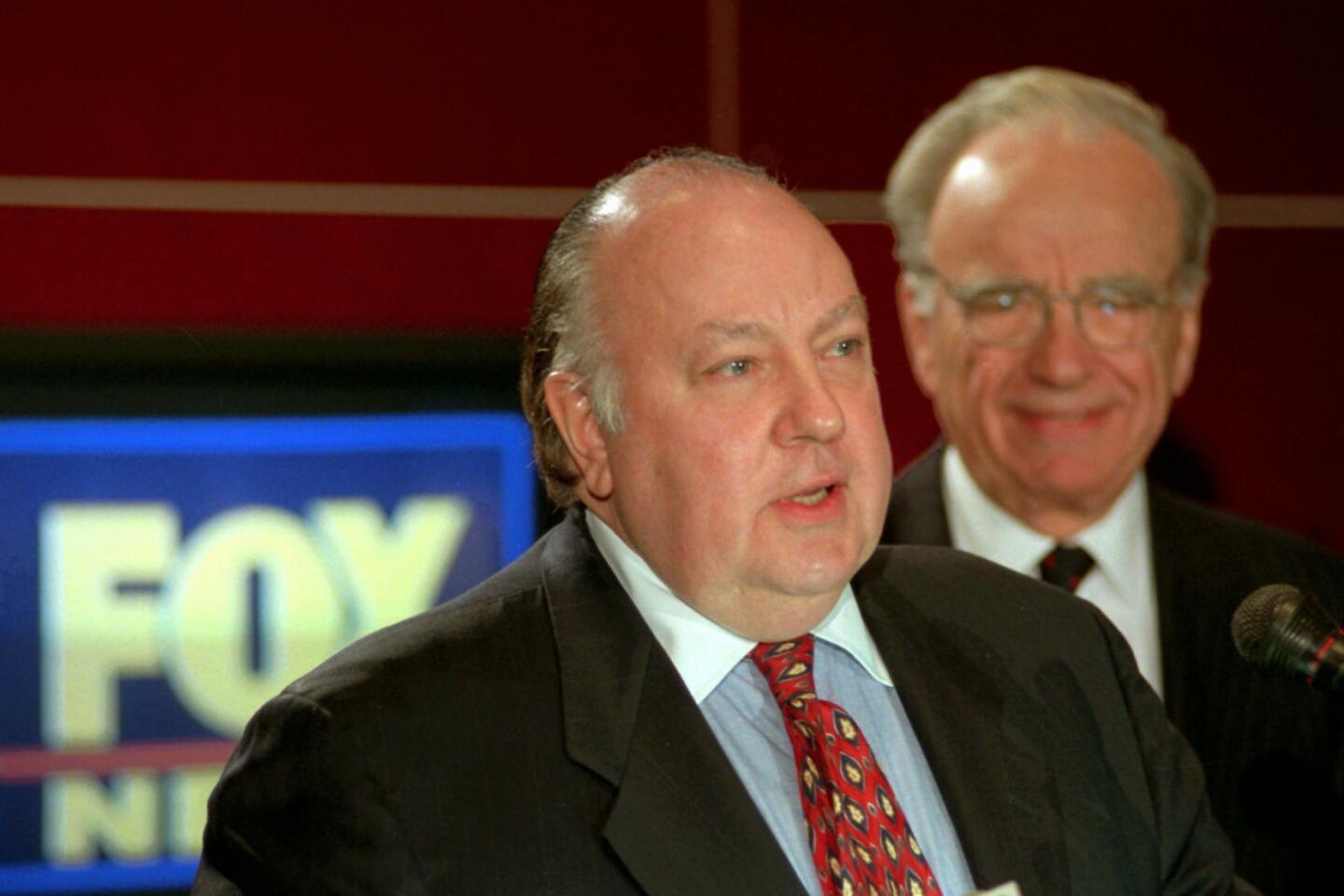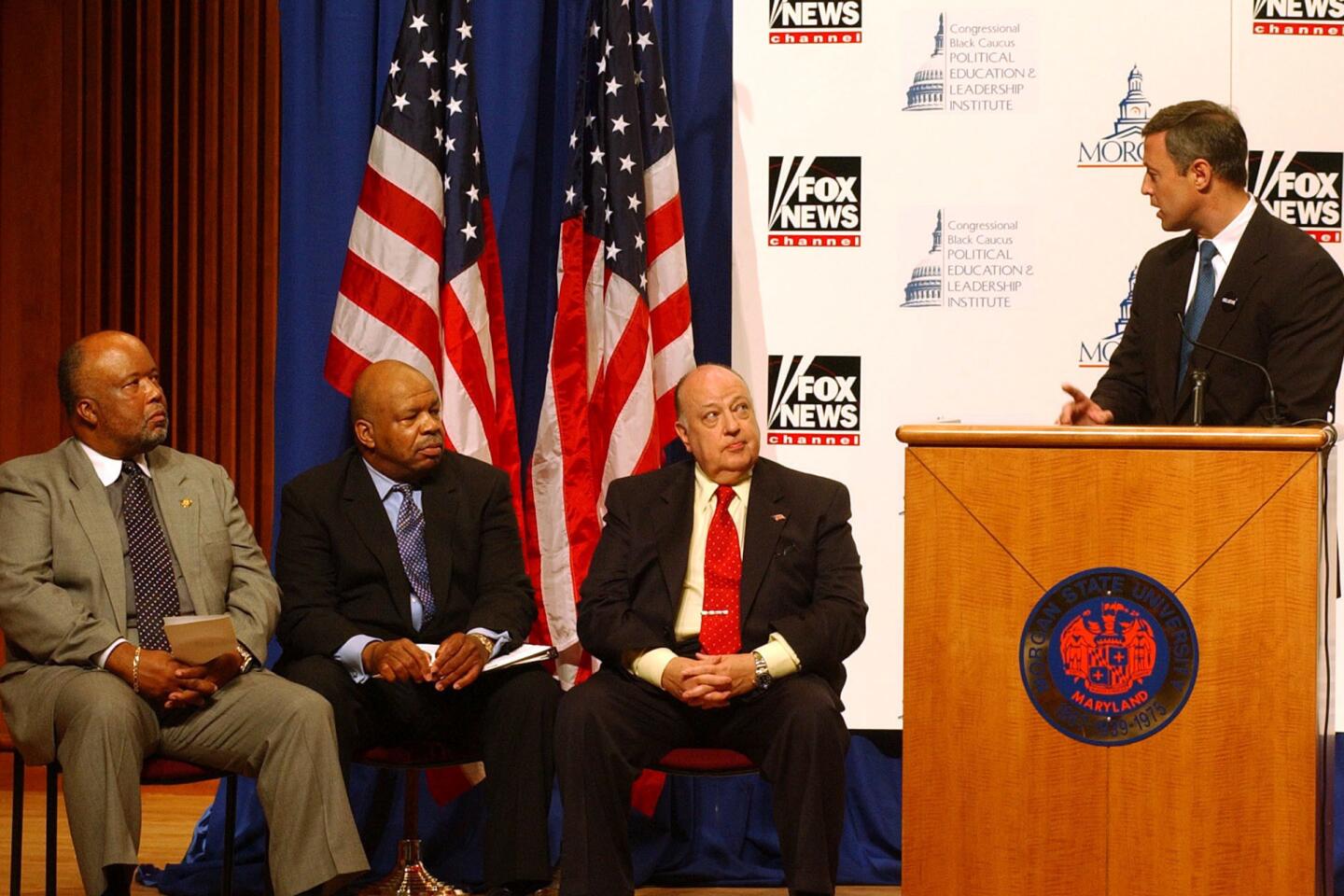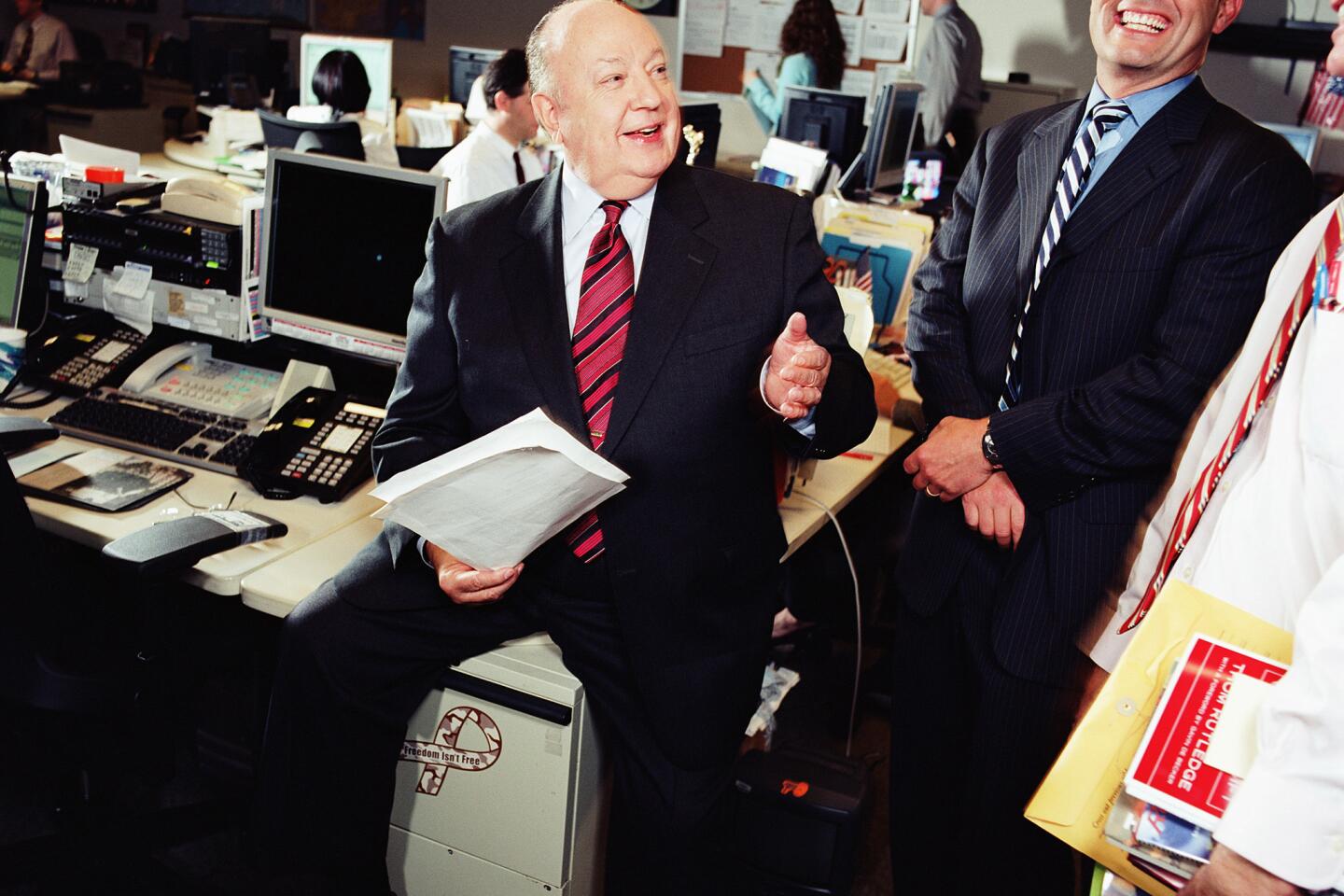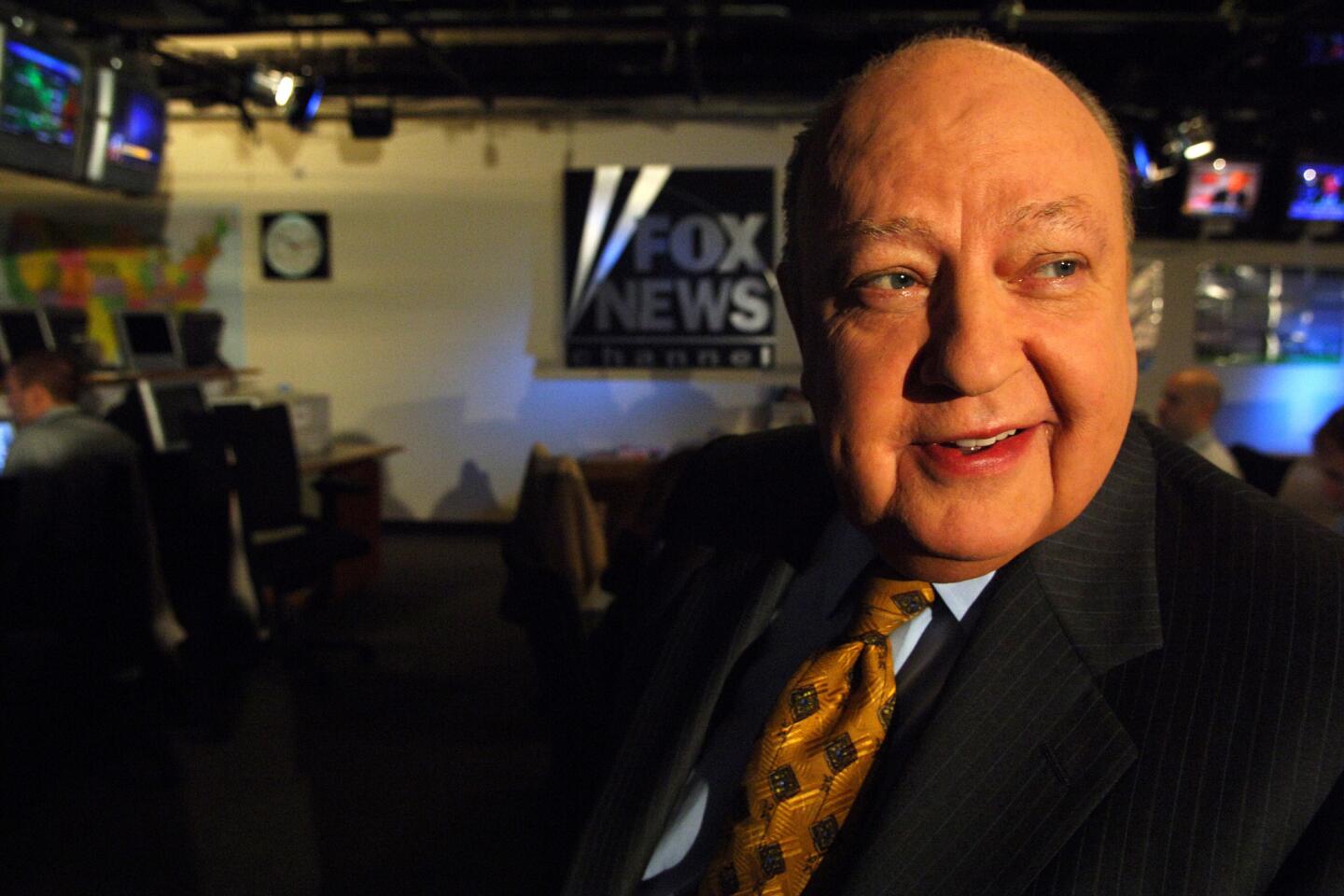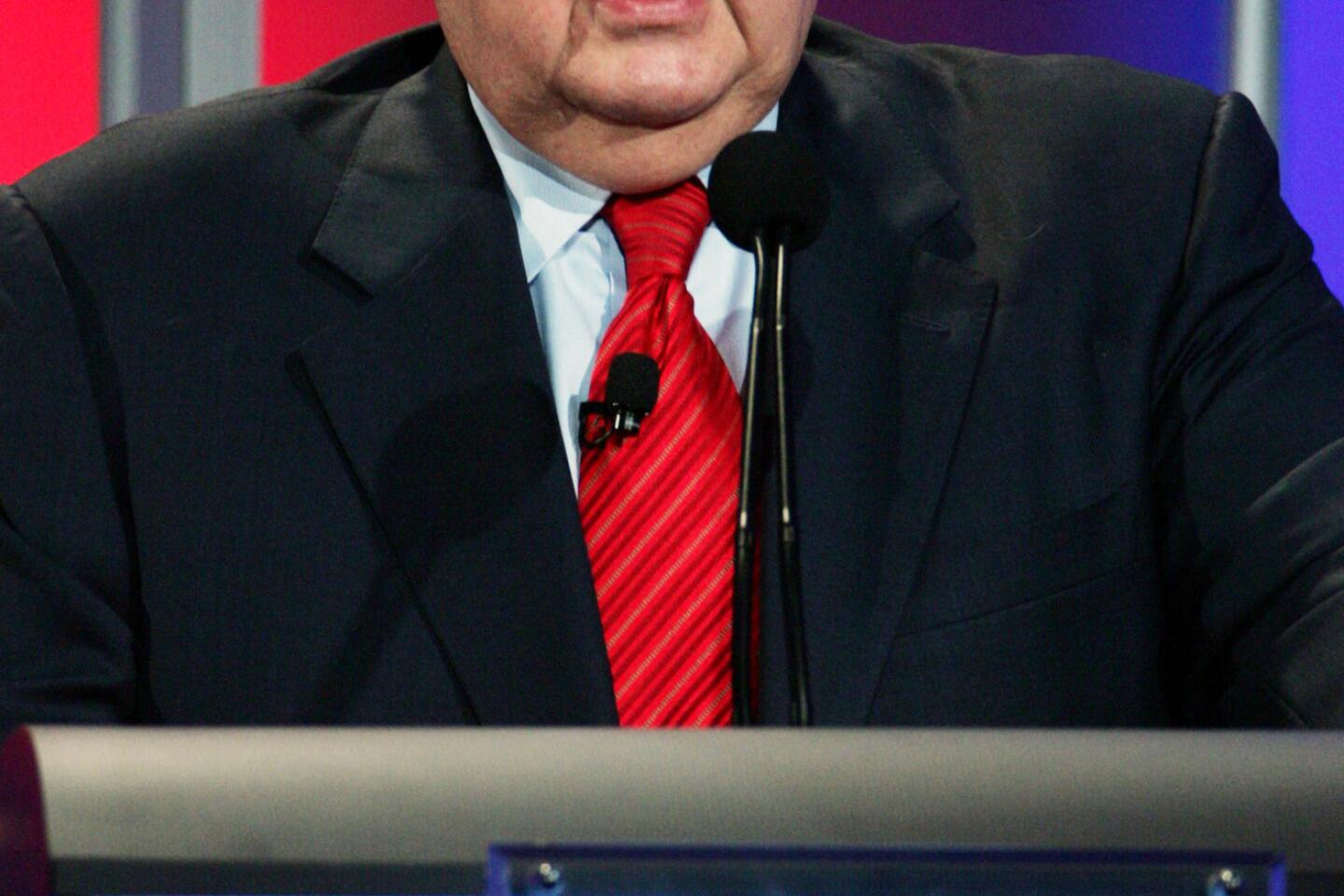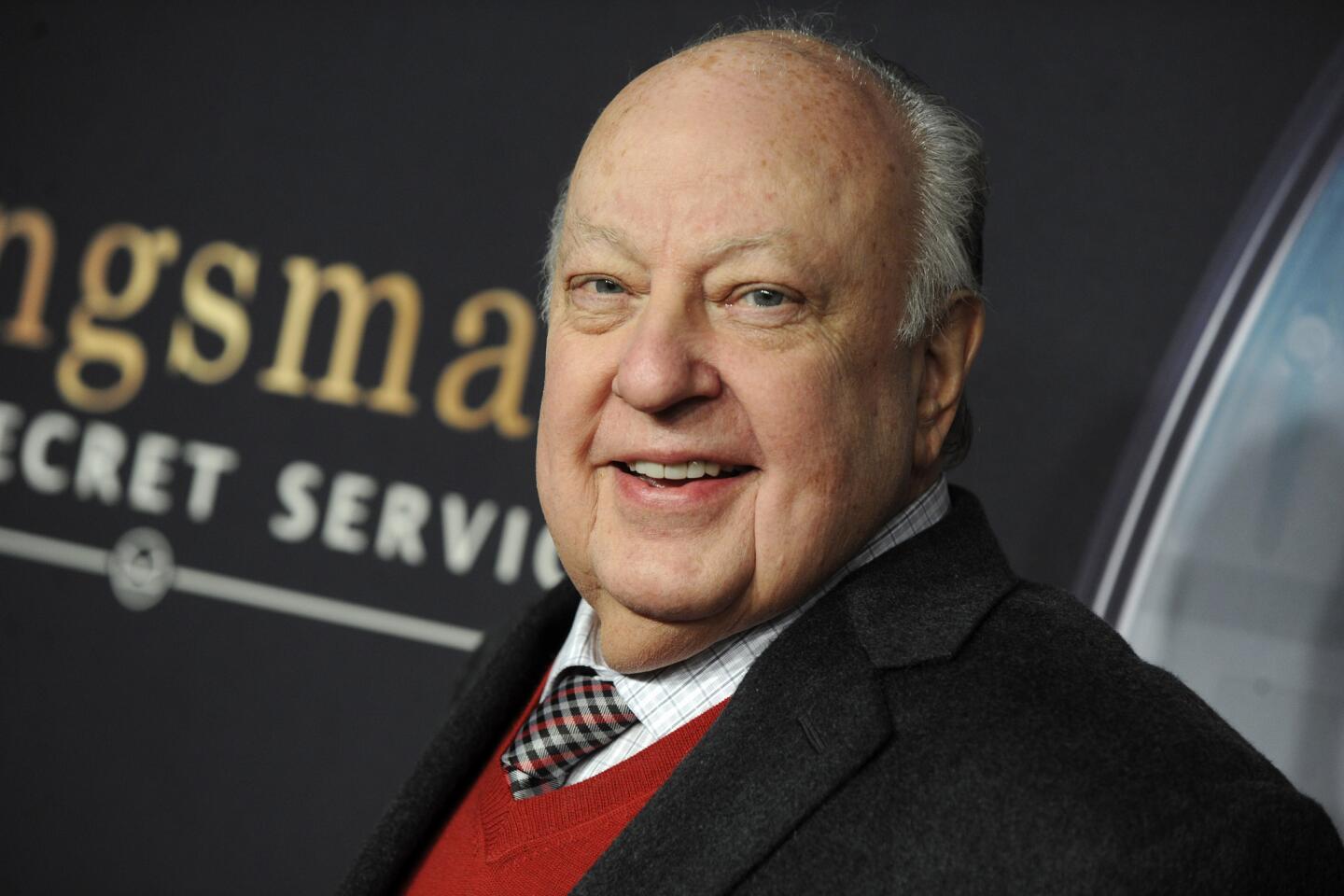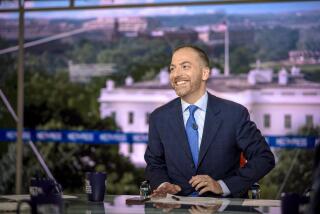From the Archives: CNBC chief and former GOP media strategist Roger Ailes is executive producer for Rush Limbaugh’s show
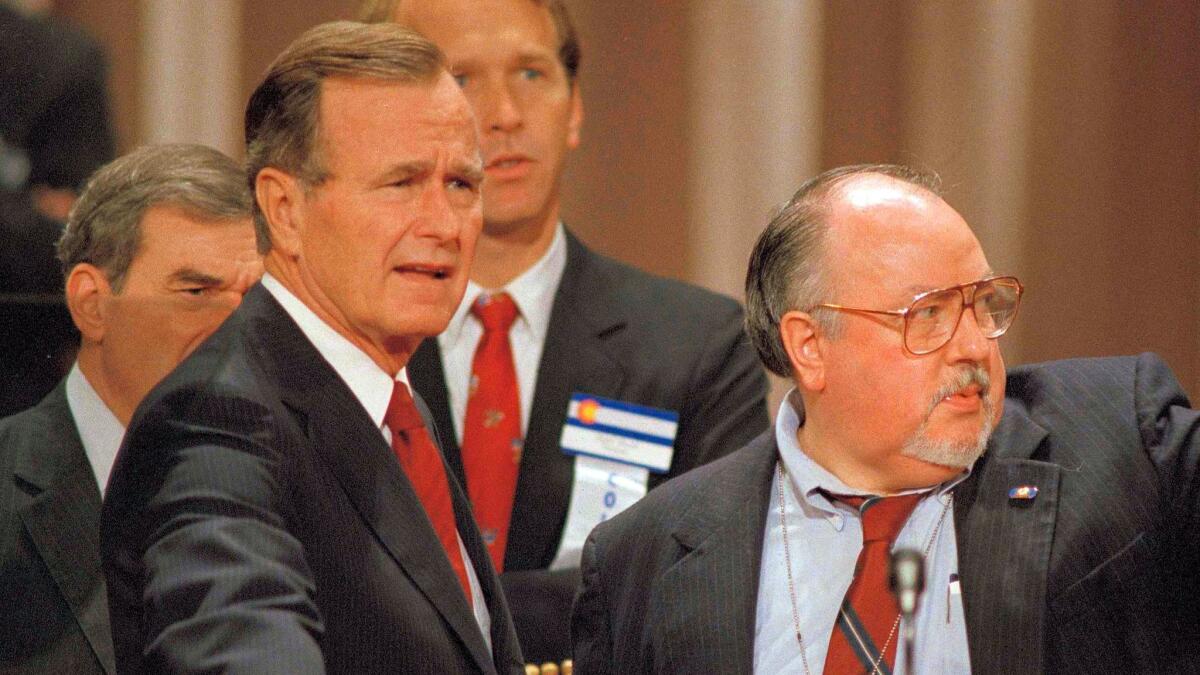
Editor’s note: Roger Ailes, founder and longtime head of Fox News, died Thursday morning at 77. In 1993, the Los Angeles Times interviewed Ailes about being named president of CNBC, his experience as a GOP media strategist and his work on Rush Limbaugh’s show. Read the article originally published on Oct. 18, 1993:
People who know Roger Ailes only as a tough media strategist for Republican candidates may have been surprised when he was named president last month of CNBC, NBC’s business-and-talk cable channel. Sure, these days he’s the executive producer of Rush Limbaugh’s syndicated TV series, but what they didn’t realize is that he’d also been a television producer before he was in politics.
And the skills he brings to one job apply to the other, he points out.
“I see myself as a ‘corner man,’ the guy in the ring coaching the boxer to throw his best punches,” said Ailes, who helped “de-wimp” George Bush’s image in 1988 with tough TV commercials and a combative performance in a live interview with Dan Rather. “Whether it’s the president or a performer on television, I think my best skill is getting the best out of people. It’s seeing what’s good about them-what communicates-and then focusing it for them.”
Still, there were concerns expressed at CNBC and in the news media that Ailes would bring a political agenda to CNBC and America’s Talking, an all-talk cable network that NBC plans to launch next year, which he also will run.
But, despite his conservative connections, Ailes said in an interview at the CNBC offices here that he has no intention of programming either channel on the basis of his own political views.
“I think we’re all smart enough to understand that there’s a difference between what we do in the voting booth and our responsibilities as a network,” Ailes said. “What I believe or how I vote will not influence my decisions in hiring or programming the network.”
NBC President Robert Wright, who hired Ailes, clearly has no qualms. “Roger has divorced himself from political advertising, and CNBC is an independent news organization,” Wright said. “He’s one of the most skilled directors and producers of TV talk programming, and he seemed to be the right person to bring us forward with CNBC.”
That is also the view of Jane Wallace, a former CBS journalist who hosts CNBC’s “Equal Time” talk show with Mary Matalin. “Roger is a terrific television producer, and CNBC could use a terrific TV producer in charge,” she said.
It was as executive producer of “The Mike Douglas Show” that the then 27-year-old Ailes met Richard Nixon in 1967. When Nixon remarked that it was a shame candidates had to use “gimmicks” such as appearing on television, Ailes responded: “Television is not a gimmick, and if you think like that, you’ll lose.”
Hired as Nixon’s media adviser in 1968, Ailes is credited as the inventor of the “selling of the President” strategy, using the forms and techniques of TV to merchandise political candidates. Over the course of the next two decades, he earned a reputation as the pit bull of political advertising. But two years ago he quit. “I was bored with it and felt I couldn’t effect change,” he recalled.
Since then Ailes has been overseeing the Limbaugh TV series and serving as an adviser to Paramount on such syndicated shows as “The Maury Povich Show” and “John & Leeza,” “Hard Copy” and “Entertainment Tonight.” He will continue the consulting job and will retain his title at Limbaugh’s program, although he won’t be involved in the day-to-day production details.
He clearly intends to play a major role in CNBC programming.
“As someone with a background in producing and writing,” he said, “it’s impossible for me to watch the screen and not see things that drive me nuts. So, for better or worse, I’ll be involved in all of the programming.”
CNBC reaches nearly 50 million homes, many of them gained through a merger with rival Financial News Network two years ago, and was profitable last year, according to estimates from Paul Kagan Associates, a media consulting firm-despite a somewhat schizoid programming image. During the day it carries shows about mutual funds and other business topics, with a stock-market ticker running across the screen. At night, CNBC features talk shows, with Tom Snyder, Dick Cavett and Phil Donahue (paired with ex-Soviet journalist Vladimir Pozner) among the hosts.
Ailes said that he does not plan any radical changes in the CNBC format. Some shows eventually might move to America’s Talking as it grows, he said, but he would like to use America’s Talking to develop new on-air talent and programming concepts.
“Our society has speeded up, but the government has slowed down and our institutions are not dealing with the nation’s problems,” Ailes said. “I’d like for our business shows to give viewers what I call `takeaways,’ additional information that helps them live successful lives. Talk shows are personality-driven, but I’d like to find more ways to deal with the issues that are driving people crazy.”
Last month, CNBC signed Geraldo Rivera to host a live call-in show that will begin early next year. Although those negotiations had begun before he took over, Ailes said he supported the move.
“We’ve just had our first meeting about the show, but I can tell you that we’ve ruled out gynecological news and throwing chairs,” Ailes said of Rivera’s project. “It won’t be tabloid or daytime in its style. I think Geraldo has gotten a bum rap in the press. He wants to expand with this new show, and I think we’ll be able to deal with some of the real issues that affect people’s lives.”
Rivera is said to have been promised a prominent slot in CNBC’s prime-time lineup, and there is some speculation at the network that John McLaughlin, whose contract is up for renewal in January, might leave. Ailes indicated that he felt there were some problems with McLaughlin’s Washington-based show — “We need to be sure the format is strong and consistent. We’re going to have a frank discussion about it” — but he added that “I’m drawing up prime-time programming plans that include all of our hosts.”
One political bedfellow whom Ailes will not be negotiating with, however, is Ross Perot. Perot recently hosted a 90-minute call-in special on CNBC, but Ailes said that discussions about any further appearances would be handled by his lieutenants.
“We’ve had a running battle in the press for two years, and I just thought I ought to take myself out of it,” he explained.
Still, despite his new corporate, nonpolitical stance, Ailes could not resist a lapse.
“I said on the Don Imus radio show (in New York) that I guess I couldn’t call Perot a ‘nut’ anymore,” he said. “I said, ‘I guess I’ll have to call him a short statesman with emotional problems which could be overcome if we only understood him.’ ”
More to Read
Inside the business of entertainment
The Wide Shot brings you news, analysis and insights on everything from streaming wars to production — and what it all means for the future.
You may occasionally receive promotional content from the Los Angeles Times.
